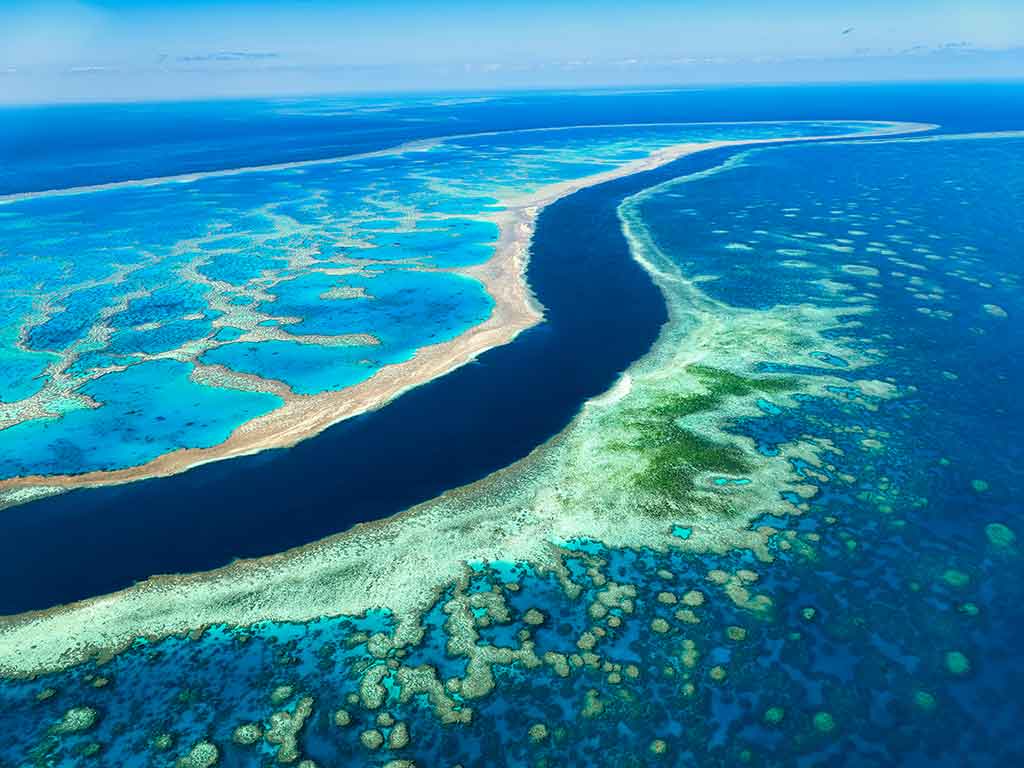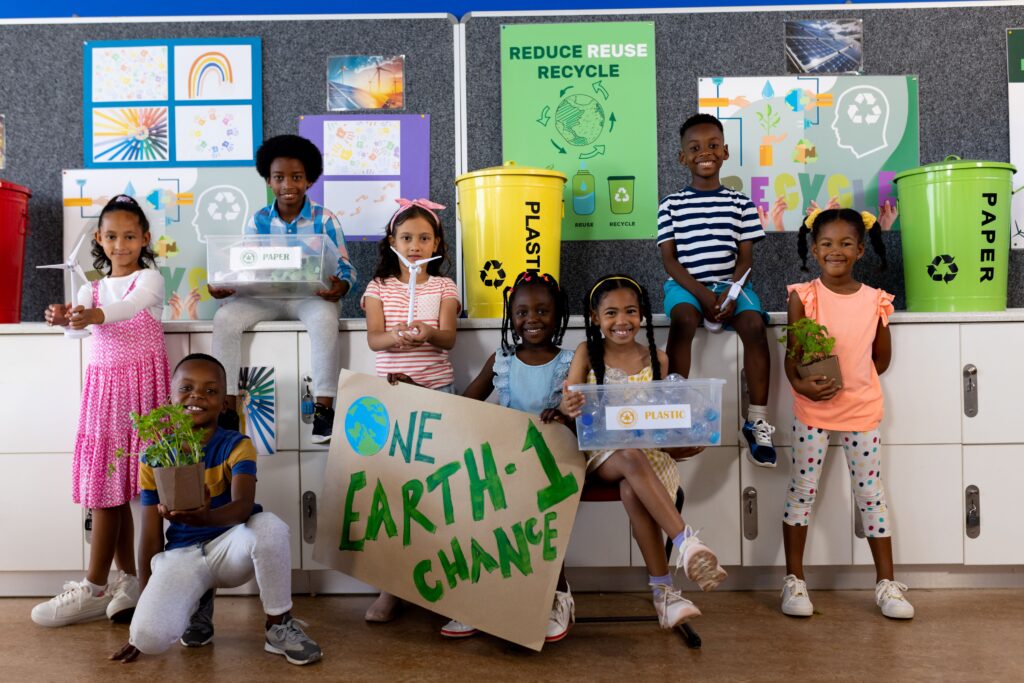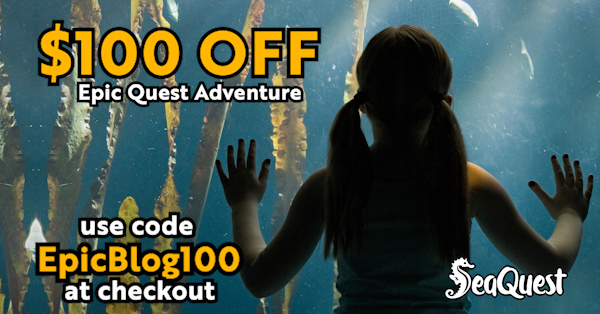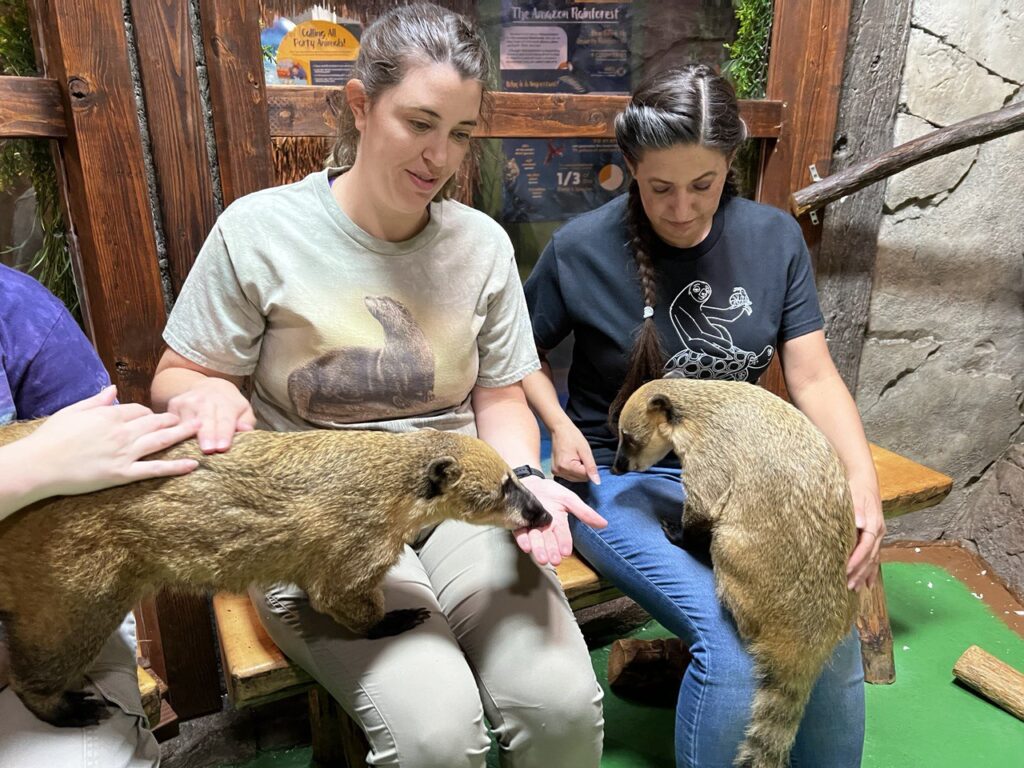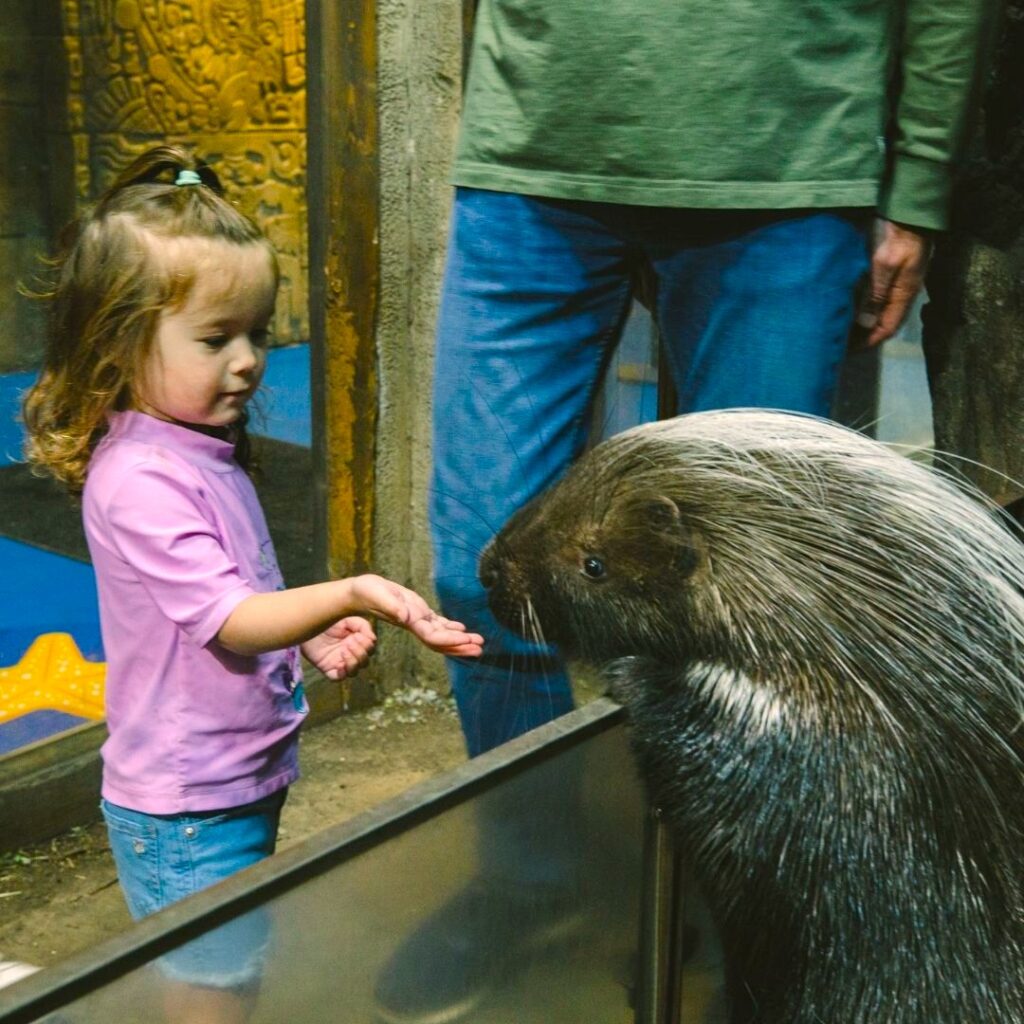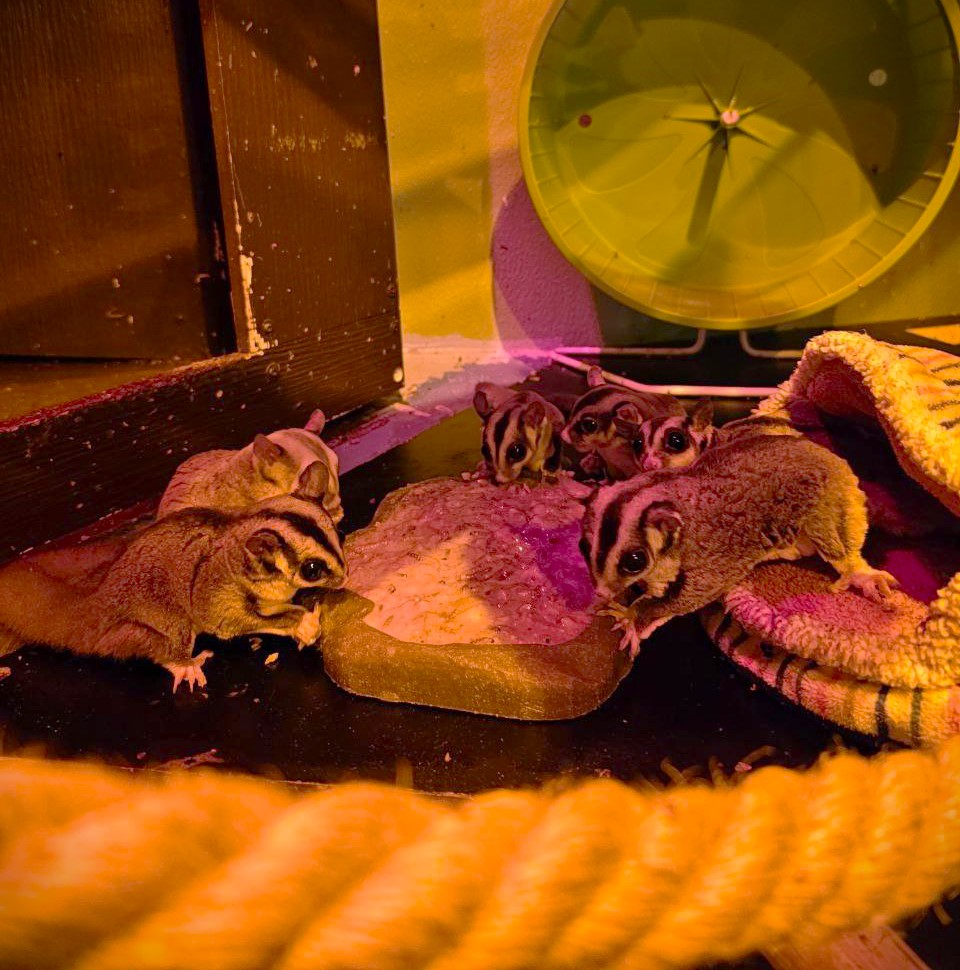Protecting Our World’s Coral Reefs
Share it on:
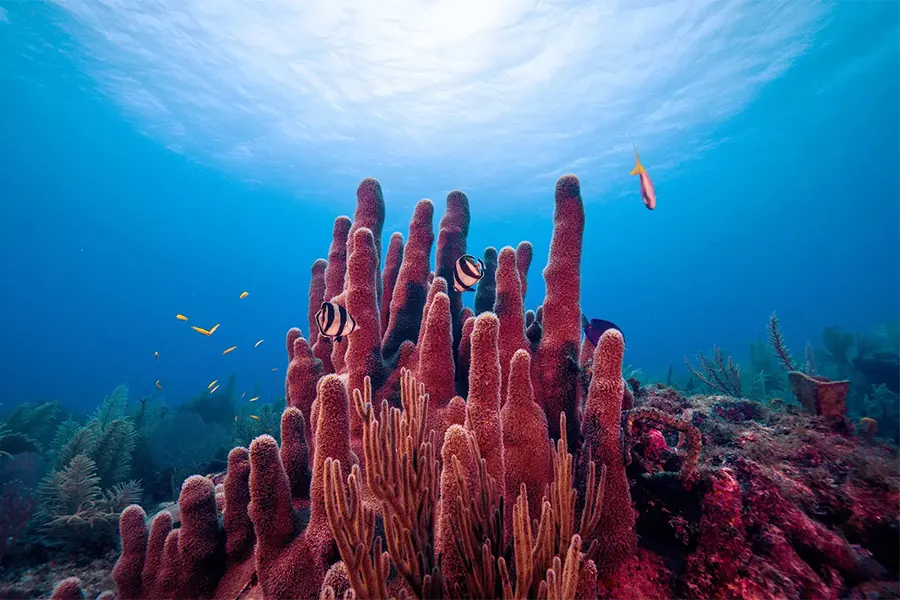
One of the most diverse and essential ecosystems on earth, coral reefs support more species per unit than any other marine environment. Not only are coral reefs significantly important for the variety of species of our oceans, but they are also a wonderfully diverse ecosystem that is beautiful to see and explore. World Reef Day is celebrated annually on June 1st and was created to bring awareness to the imperative role of coral reefs in the global ecosystem. The day allows everyone to learn more about the importance of our coral reefs. It also serves as a call to action to help save and protect coral reefs.
What Are Coral Reefs?
As one of the largest biodiverse ecosystems on the planet, coral reefs are home to over 4,000 species of fish. They provide a plethora of resources for fish to thrive in, such as habitats, feeding, and spawning. Coral reefs are vast and comprised of coral animal colonies that secrete calcium carbonate, also known as limestone. As time progresses, the limestone secretions build up and create structures, some of which can be seen from space! Coral reefs are built by a variety of species of hard corals. The colonies that form these structures can take on a multitude of shapes and sizes. These colonies then grow close together on the reef to create vibrant underwater cities for thousands of invertebrate and fish species.
The most famous coral reef on earth is the Great Barrier Reef in Australia, which is a staggering 2,300 kilometers or 1,400 miles long!
Why Are Coral Reefs Important?
Often referred to as the sea’s rainforests, coral reefs are home to 25% of all the ocean’s marine species. Healthy coral reefs are the most diverse of all the planet’s ecosystems, rivaling the diversity in the Amazon. Close to 2 million different types of animals thrive within or around coral reefs.
Coral reefs produce 50% of the world’s oxygen while covering only .0025% of the ocean floor. Along with containing oxygen, coral reefs absorb nearly one-third of the carbon dioxide from burning fossil fuels.
Humans rely on the reefs for several reasons, including:
- Food for the people living near the coral reefs, especially on small islands.
- Recreation and tourism: such as fishing, scuba diving, and snorkeling.
- Life in a coral reef also can contribute to medical & scientific advances, such as developing new ways to treat diseases.
Coral reefs are an undeniably critical part of the ocean and also have a significant impact on coastal communities. It’s estimated that over one billion people live on or near coastal waters and shorelines. Coral reefs provide food and livelihoods, reduce storm surge and flood risk to coastlines across the tropics, protect against erosion and attract tourists to over 100 countries and territories.
Did You Know?
Due to climate change and industrialization, more than half of the Great Barrier Reef has disappeared in the last 27 years.
What is the Biggest Threat to Coral Reefs?
Despite their importance, coral reefs face local and global threats. Nutrient runoff from land sources like agriculture or deforestation, overfishing, pollution, and climate change are all major contributing factors to the diminishing of our coral reefs. Simply put, coral reefs are dying.
75% of the earth’s coral reefs are at risk from global stresses. It’s estimated that by the year 2030, 90% of the earth’s coral reefs could die off.
A recent study revealed that the overwhelming amount of plastic pollution in the Pacific ocean attributes to the disease and death of the coral. Along with the plastic put into the ocean killing the reefs, coastal development has a significant impact on their decay, causing erosion and runoff containing excess sediment. This can boost ocean algae growth which starves the water of oxygen. The death of the coral reef could create a massive impact on not just animal life but also humankind.
How Can We Protect Coral Reefs?
Unfortunately, climate change is here and looks to only get worse. The good news is that there are some things anyone can do to protect coral reefs and limit their destruction. Awareness and empowerment are the best steps to help get involved.
To give corals the best chance of survival, a few things need to happen:
- Reduction of human impacts on reefs, such as overfishing and pollution.
- Rapidly moderate practices that can improve climate change.
Countless communities, nonprofit organizations, companies such as SeaQuest, and governments are doing their very best to reduce stressors to reefs. They all work towards improving water quality, reducing overfishing, and combating land-based pollution.
Here’s a list of things you can do to help improve climate change and protect coral reefs:
- Conserve Water: The less water you use, the less runoff and wastewater will pollute our oceans.
- Reduce and Recycle: Limit plastic usage and unnecessary waste.
- Go Chem Free: Use only ecological or organic fertilizers that do not contain dangerous chemicals or pesticides.
- Organize a Beach or Lake Clean-Up: Plastic pollutes ocean waters and harms coral reefs and other sea life
- Build Awareness: Talk to your family, friends, and neighbors. Tell them about coral reefs, and explain the coral reef crisis. Ask them to get involved and make a difference too!
- Get Involved: Support and volunteer for organizations that focus on conservation and protection of the environment.
SeaQuest is committed to protecting our world’s oceans, wildlife, and endangered animals. We focus on how to be proactive in finding solutions. To learn more about how you can help protect and save coral reefs, book your visit today at any of the following locations: Utah, Las Vegas, Dallas-Fort Worth, Sacramento, Minneapolis, Lynchburg, and New Jersey.

